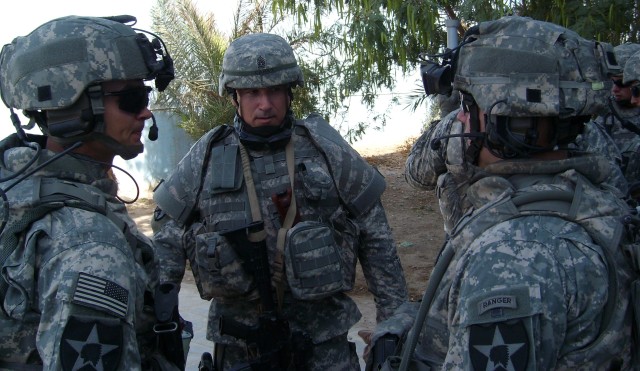FORT MCPHERSON, Ga. (Army News Service, June 29, 2009) -- In keeping with this year's theme for the Army, "Year of the NCO," the command sergeant major of U.S. Army Forces Command has a message for his enlisted troops: "Go back to basics."
Command Sgt. Maj. Dennis M. Carey, who is the top-ranking noncommissioned officer for more than 800,000 troops across the United States, said that mastering basic Soldier skills is as important now as it ever was.
"To me it's the reality-based part of the Army-being an NCO," Carey said. "As an NCO you get a Ph.D. in people and a Ph.D. in Soldiers."
"We need to take some time to learn and teach those skills," Carey said. "We need to go back to the core competencies and make sure we are proficient."
Some of the NCO skills Carey stressed were counseling and suicide prevention training.
"For Year of the NCO, the biggest thing the NCO has to do is teach and mentor Soldiers ... the key part is to get back to basics," he said.
Carey said it is important that the American people understand the vital role noncommissioned officers play in the Army, even if much of what they do is behind-the-scenes.
Previously serving in assignments ranging from the North Atlantic Treaty Organization to drill sergeant duty, Carey said a big difference between many officers and NCOs is that NCOs constantly work directly with lower-enlisted Soldiers throughout their career, while officers often do not. For example, using the Army's traditional chain of command, officers relay their intent to NCOs, and NCOs carry out the mission according to the commander's guidance.
Historically, lower-enlisted Soldiers do not have much contact with officers, and instead are trained almost exclusively by NCOs.
Carey said working with and training Soldiers is something he has enjoyed most about his career.
"You're developing Soldiers ... that really grows on you and becomes part of your life," Carey said.


Social Sharing